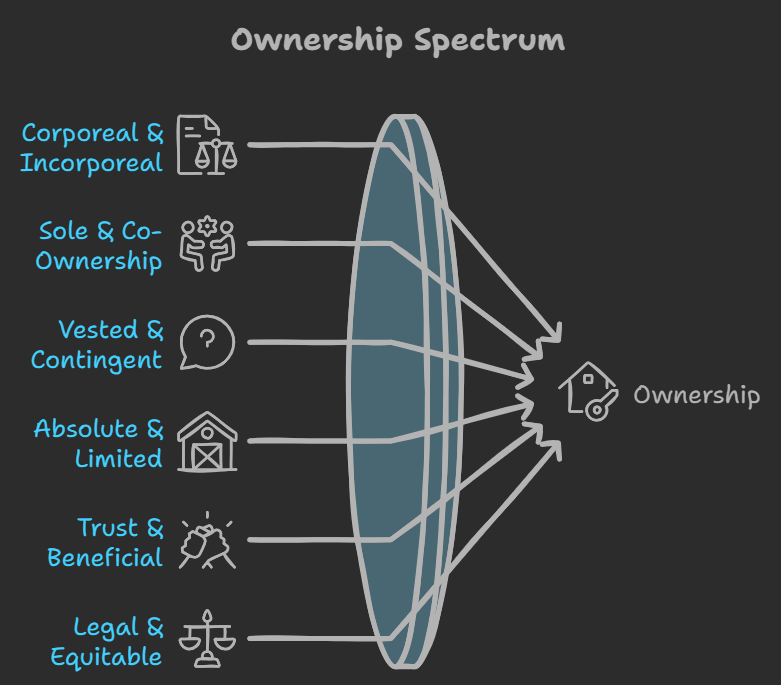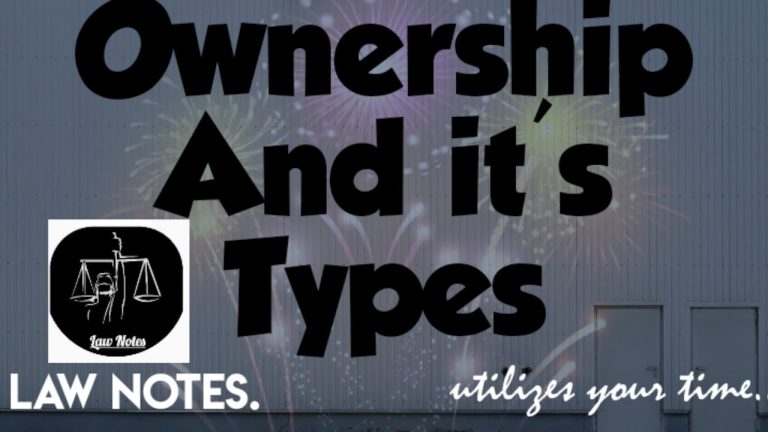Ownership
Ownership refers to the relation that a person has with an object that he owns. The concept of ownership is related with the property.
The relation between the things and right over it is ownership. It is believed that possession on a thing is the first stage of ownership.
Ownership gives full rights over the things including disposing the property. For Example, when I buy a house i take ownership of it. It becomes mine and I have full right over the house.
Definition

According to Austin: “Ownership is a right over a determinate thing indefinite in the point of user, Unrestricted in point of disposition, and ultimate in point of duration.”
According to Hibbert: “Ownership is a bundle of rights”. It can be exercised on a corporal things i.e. an animal, chair or house e.t.c. It consists of four kinds of rights i.e.
- Right to use of thing
- Right to exclude others from using the things
- Disposing of the things
- Right to destroy it.
According to Holland: “Ownership is a plenary Control over an object”. according to him, an owner has three rights on the object owned:
a. Possession
b. Enjoyment
c. Disposition
Kinds Of Ownership

1. Corporeal and Incorporeal Ownership.
The Ownership may be of a physical object or of a right only it is called as corporeal Ownership. For example: Ownership over land, house, Car etc..
When the subject matter of ownership is an incorporeal thing then the ownership is called as incorporeal. for example: Patent, Copyright
2. Sole Ownership and Co- Ownership.
When the ownership is vested in a single person it is called sole ownership. for example: A person owns a bike, car owner.
When the ownership is vested more than one person at the same time, it is called co-ownership. for example: Partnership, the members of partnership are co-owners of the partnership property.
3. Vested and contingent Ownership.
Vested ownership is that type of ownership when the title of person is perfect. it is absolute in nature.
Contingent ownership is that type of ownership when the title of the owner is imperfect, and it will become perfect on the fulfillment of certain condition. it is conditional in nature.
4. Absolute and Limited Ownership
When in a person all rights of ownership (i.e. possession, enjoyment and disposition) are vested without any restriction, his interest is absolute ownership.
When there are limitations on uses or duration or disposal, the ownership is limited ownership.
5. Trust and Beneficial Ownership.
The subject matter of such ownership consists of property owned by two person wherein one person is obligated to use it to the benefit of the others. The person under such an obligation is called the trustee and his ownership is known as a trust ownership.
The person to whose benefit the property is to be used is called the beneficiary and his ownership is known as beneficial ownership.
6. Legal and Equitable Ownership.
The ownership which has its origin in the rules of common law are recognizedby the common law court are called legal ownership.
The ownership which has its origin in the rule of equity and are recognized by the equity court are called equitable Ownership.
Inconclusion:
Ownership in its nature is residual and can be said to have a bundle of rights attached to it. but at the same time it also denotes the relation between a person and the thing to be owned .




